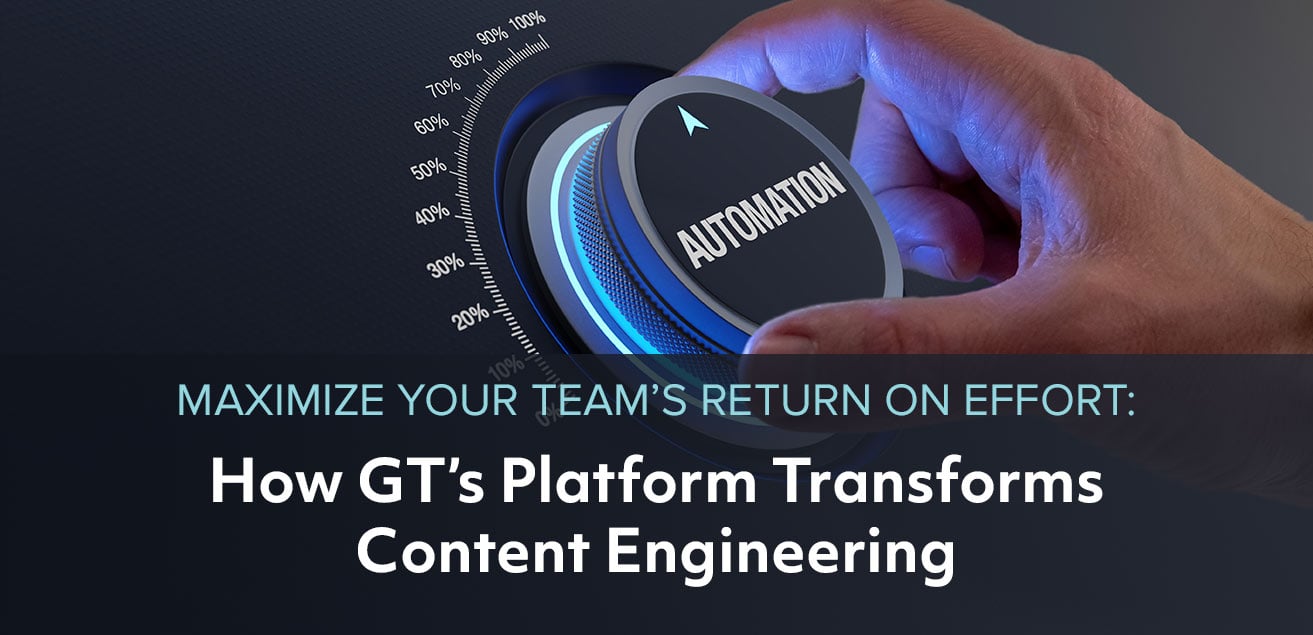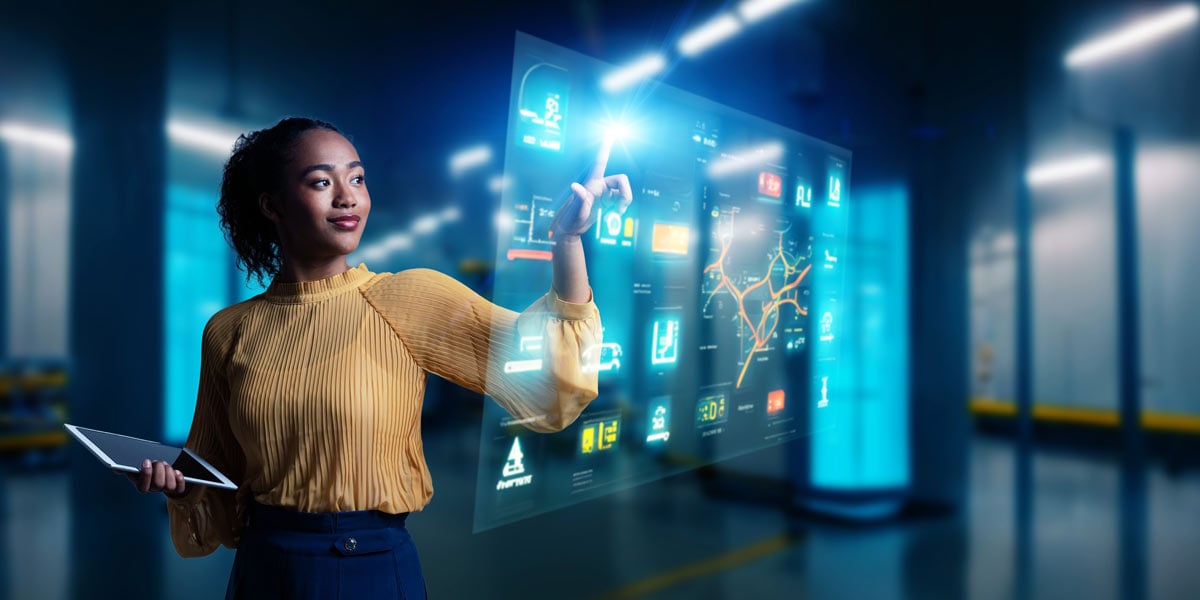According to Forbes, the 2019 growth strategy for manufacturers was focused on improving shop floor productivity through investing in machine learning (ML) platforms. That focus may not have resulted in as many actual deployments as forecast, but it did highlight some industry concerns.
According to a TechRepublic survey, 56% of respondents felt implementing machine learning, and artificial intelligence (AI/ML) projects would be more complicated than previous IT projects for the following reasons:
- 53% of business users are not clear on what to expect
- 47% of respondents feel that IT lacks skills to implement
- 33% feel upper management lacks understanding
- 22% are concerned with time and cost overruns
- 13% feel they lack vendor support
Upper management is focused on the significant investment that goes along with machine learning platforms. They have questions about its return on investment, given its high cost.
Current State
In the past, computing power and communication speed limited machine learning deployments. Today’s advances in technology have removed some of those constraints, increasing pressure on companies to realize the potential benefits of machine learning. After all, smart devices were deployed throughout the industry with the expectation of improved performance at lower costs.
Machine learning platforms generate vast amounts of data, which must be processed to produce output that can be shared. Improved computing capacity is making it easier to process large data sets in less time. Better algorithms make it easier to extract pertinent information. With the upcoming implementation of 5G, the ability to transfer large data sets over wireless communication systems is no longer a constraint. Technological advances mean fewer obstacles to successful deployments.
Here are three companies that are using machine learning and artificial intelligence (AI) to gain insights and improve business operations.
Fanuc
Fanuc is a leader in industrial robotics. This Japanese firm decided around 2015 to create greater connectivity to its use of AI. It acquired a percentage of an AI startup to integrate its deep learning technology into its robots. Then in 2016, Fanuc collaborated with Cisco and Rockwell Automation to develop an industrial internet of things platform for manufacturing called FIELD. The company also partnered with NVIDIA to use its AI chip in Fanuc's factories.
What resulted was a system that used deep reinforcement learning to let robots train themselves. Robots would perform the same tasks multiple times until they reached a level of proficiency. These robots would then train other robots. This fast learning reduced downtime and enabled the factory to handle more varied products.
Developing the initial programs required significant resources, but once each specific action was programmed, the robots were able to learn for themselves. Having robots perform repetitive tasks significantly increased the cost-effectiveness of the company's business model.
KUKA
KUKA is the world's largest manufacturer of industrial robots. The Chinese-owned German company is investing in the interface between humans and robots. Robots are powerful. They are also without intelligence beyond what they are programmed to do. This discrepancy has become a major health hazard because of the potential harm to the humans who work alongside them.
KUKA claims their LBR intelligent industrial work assistant (iiwa) “is the world’s first HRC-compatible robot.” By combing intelligent control technology and high-performance sensors, these robots work next to humans without risk of potential harm. KUKA uses these LBR iiwa robots in their factories, as do other major manufacturers such as BMW. Not only do the KUKA robots work alongside humans, but they are also able to operate in a smaller space, increasing the effective use of space on the factory floor.
Another advantage of human-friendly robots is their ability to be reassigned. Because they are no longer constrained in their deployment, reconfiguring a production line no longer has to take into account the robot-to-human interface. Robots can go wherever humans can, which increases the flexibility of the factory floor.
Walmart
Walmart is using ML technology that shows potential for increased profits. It is using IBM's weather-enhanced Watson to learn more about the correlation between weather and consumer behavior. IBM's weather Watson draws data from stations, news feeds, and social media to create a picture of likely weather conditions.
Predictive weather analytics can help retailers such as Walmart make better decisions on supply, promotions, and pricing. Using Watson-supplied data sets, Walmart learned that people bought steaks in warm, windy, and cloudy weather. In hot and dry weather, consumers preferred hamburger. Using these weather predictions, Walmart promoted hamburger during hot and dry months and saw an 18% increase in its beef patty sales.
In 2016, Walmart started using proprietary drones in its warehouses to improve inventory control. What took employees a month to complete, a fleet of drones could complete in hours. These sophisticated drones fly through the warehouse, scanning items. They even check for misplaced items. These drones reduce the time and resources needed for inventory control.
Future Potential
Proponents of machine learning point to additional use cases where manufacturing can realize ML's potential. Among these are:
- Price Optimization
- Warranty Claims
- Supply Chain Risks
These are possible areas where machine learning can contribute to continuous improvement.
Price Optimization
Finding a price that works for both the buyer and seller has been part art and part science. With machine learning tools and analytics, companies can aggregate data from multiple sources to determine the perfect pricing. As Walmart discovered, something as common as the weather can play a significant role in what consumers will pay for an item. Given the speed with which consumers change their buying patterns, companies need processes to manage the data for continuous improvement in pricing optimization.
Warranty Claims
Although warranty claims provide useful information on the quality and reliability of a product, they do impact the bottom line. Using the volumes of data retained through warranty claims enables companies to make continuous improvements to their products. Whether the data is acquired through traditional methods or ML/AI systems, manufacturers need a way to analyze the volumes of data to produce actionable insights to reduce warranty claims.
Supply Chain Risks
Deploying machine learning platforms that can evaluate the quality and consistency of suppliers means companies can be alerted to potential bottlenecks or quality issues before they become a customer issue. Whether the machine notices a slow down in production or a decrease in quality, the information can be used to alert companies to a possible problem. This real-time data acquisition and analysis is critical for the future success of manufacturing. Customers have grown to expect an immediate resolution to a problem.
Conclusion
Machine learning and artificial intelligence have the potential to change how manufacturing is done. At the same time, determining how to quantify its impact on the bottom line remains elusive. One of the primary obstacles to its acceptance is the industry's failure to quantify the return on investment. Although the industry is willing to accept that the ML/AI paradigm can lead to continuous improvement, few are ready to commit significant resources to a project that cannot consistently quantify its ROI. Perhaps the first step in industry-wide acceptance is turning the ML/AI data into quantifiable and actionable insights that are reflected in the bottom line.
At Gutenberg Technology, we are committed to helping companies turn their knowledge into actionable insights that improve the bottom line. Your knowledge has the potential to propel your business forward. We can help you unlock that potential.

.png)




Leave a comment